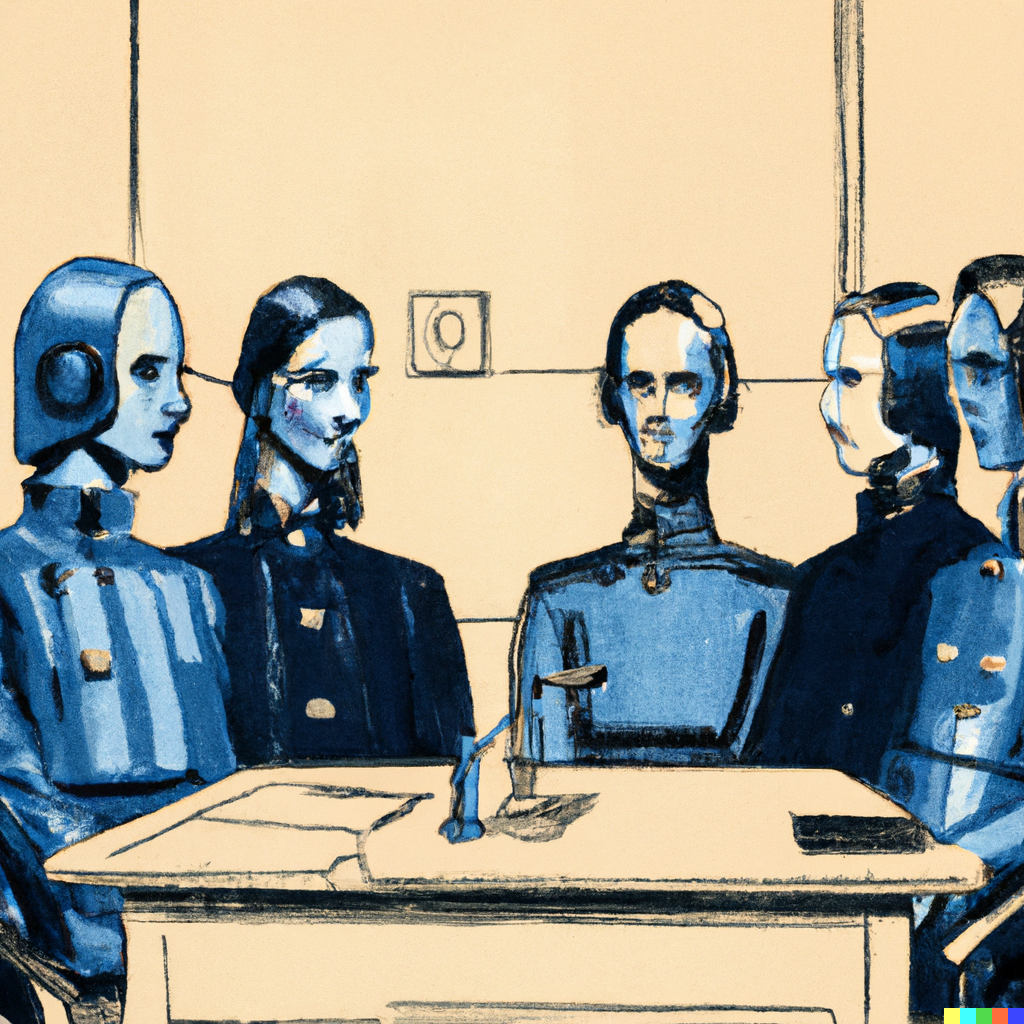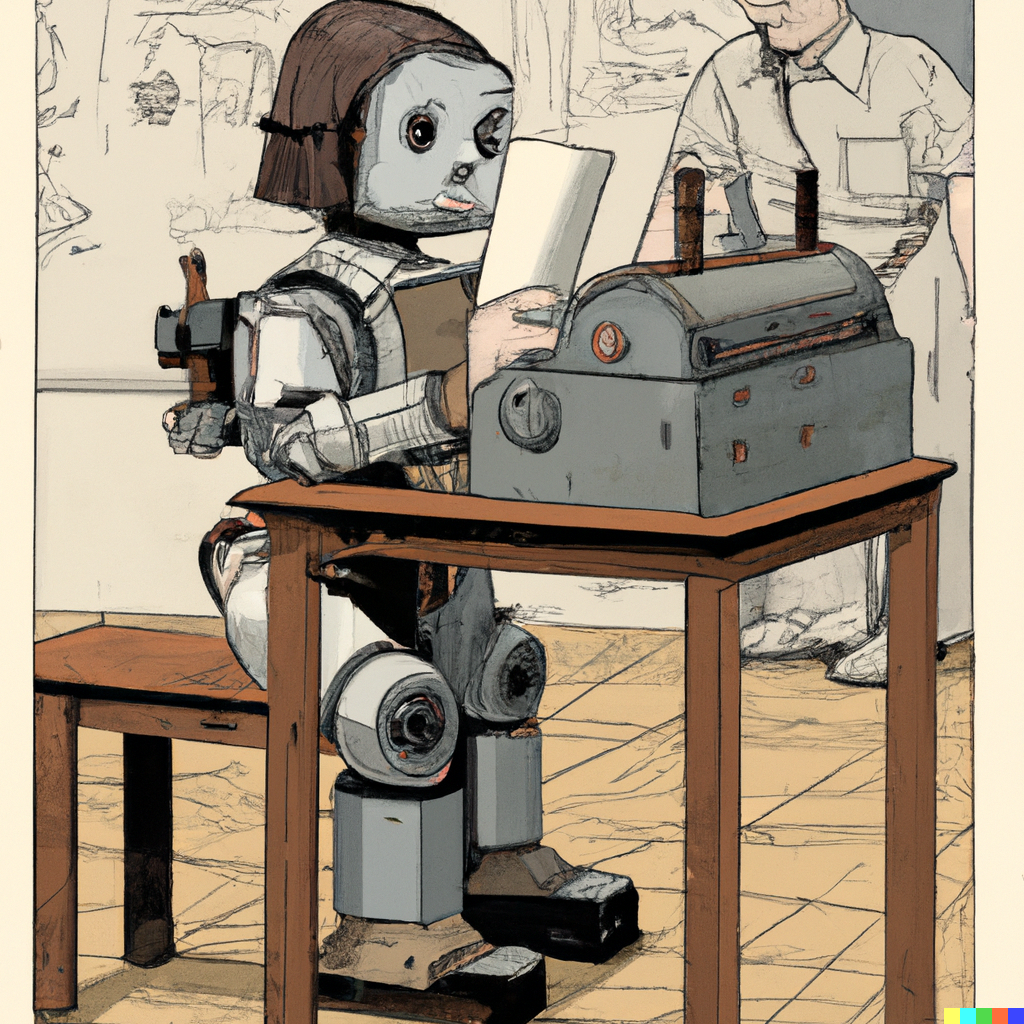Among the many impacts that COVID-19 – and the lockdowns it brought in many parts of the world – has had on our lives, one of the most visible ones is the shift to digital-technology-assisted learning. Not only students, but also parents, administrators, politicians and researchers observed with apprehension how schools and universities provided online classes and asynchronous lessons, often for the first time. This change invited questions concerning the validity of online teaching and the need for personal contact – or indeed the need for university lecturers in a world of prerecorded lectures. In short, it invited questions about the impact digitalization may have on education.

Androids attending a video conference
Dall-E (Image generator, 2023)
We believe that these recent questions are a reflection of deeper issues that have been reshaping our self-understanding as humans in the last 50 or so years. While until the late 20th century this self-understanding was mainly shaped by our perceived relationships with animals or God(s), lately it has been more and more shaped by machines (such as computers) or technologies (such as “Artificial Intelligence”). It has made us ask questions about the uniqueness of our abilities (what if computers can actually “think”?) and imagine possibilities of enhancing our bodies with technological prostheses.
These changes are of profound importance for the field of education, since education has always been shaped according to an understanding of what it means to be human – whether its goal was to produce “cultured” individuals, good citizens or adept workers – and, more widely, what it means to form a human community. This is why, in the proposed research, we decided to ask three main questions: (1) Who is the subject that today’s educational policies and practices – shaped, as they are, by new technologies – seek to produce?; (2) By what means do they seek to do so?; (3) To what end do they work, i.e., what kind of community do they envisage?

An android learning
Dall-E (Image generator, 2023)
We plan to answer those questions by (1) conducting theoretical analyses of currently existing theories and trends in education – for example patriotic education, STEM-focussed “for profit” education or humanist education promoting empathetic imagination; (2) analyzing the documents of bodies governing education (such as Ministries of Education) in Poland and Slovenia; (3) conducting empirical research, mainly interviews and focus groups, with teachers from urban and rural regions in both countries.
The research will help us to better understand how new technologies are reshaping education on the theoretical and practical level. Through a thorough understanding of the processes involved, we hope to be able to provide useful guidelines to both policymakers and teachers.